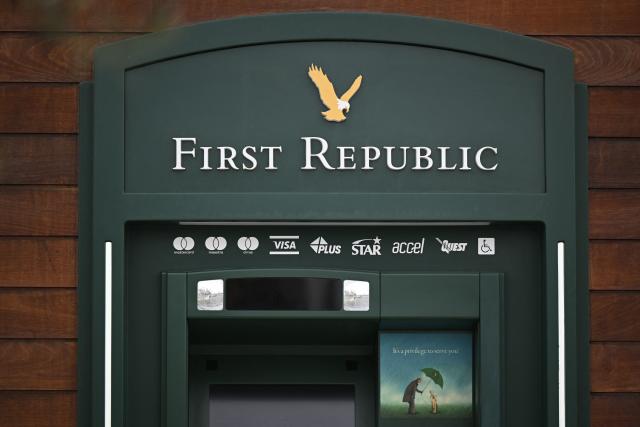
First Republic shares fall more than 20 percent
Major Banks' Efforts to Boost Confidence in First Republic Insufficient as Shares Continue to Plunge
First Republic Bank Shares Fall Despite $30 Billion Deposit Infusion from 11 Major Banks
Shares of First Republic Bank were under pressure Friday, falling about 24% despite receiving a $30 billion deposit infusion from 11 major American banks, including Goldman Sachs, Morgan Stanley, Bank of America, Wells Fargo, Citigroup, JP Morgan, US Bancorp, PNC, State Street, Truist, and Bank of New York Mellon. The move was intended to build confidence in the US banking system after recent stock crashes and fears of a mass withdrawal of cash.
This action comes after the collapse of Silicon Valley Bank and American Signature, which had high numbers of uninsured deposits, as does First Republic. The deposit agreement, which will last for at least 120 days, aimed to alleviate concerns that customers would withdraw their money. However, First Republic's shares continued to fall, becoming the worst performer in the SPDR S&P Regional Banking ETF (KRE) — which dropped 5.7%. Other regional banks, such as PacWest, Western Alliance, and KeyCorp, also experienced significant losses.
Despite the substantial deposit infusion, some analysts are concerned that it may not be enough to stabilize First Republic in the long term. Atlantic Equities downgraded First Republic to neutral, noting that the bank may need an additional $5 billion in capital. Analyst John Heagerty wrote, "Management is exploring different strategic options, which may include a full sale or divestments of parts of the loan portfolio."
Wedbush analysts put a $5 price target on First Republic, suggesting that a takeover could wipe out most of its equity value. The analysts stated, "A distressed M&A sale could result in minimal, if any, residual value to common equity holders owing to FRC’s significant negative tangible book value after taking into account fair value marks on its loans and securities."
First Republic announced that it has $15 billion in cash as of March 15, not including the deposits from the 11 banks or additional financing that it may raise from the special fund established by the Federal Reserve. The bank also reported a decline in the rate of cash withdrawals and has instituted a freeze on dividend distribution.
Read More
-
GPIQ ETF Price Forecast: Can a 10% Yield at $52 Survive the Next Nasdaq Selloff?
09.02.2026 · TradingNEWS ArchiveStocks
-
XRP ETF Price Forecast: XRPI at $8.32, XRPR at $11.86 as $44.95M Inflows Defy BTC and ETH Outflows
09.02.2026 · TradingNEWS ArchiveCrypto
-
Natural Gas Futures Price Forecast: Will The $3.00 Floor Hold After The $7 Winter Spike?
09.02.2026 · TradingNEWS ArchiveCommodities
-
Stock Market Today: Dow Back Under 50K While S&P 500 and Nasdaq Push Higher as Gold Reclaims $5,000
09.02.2026 · TradingNEWS ArchiveMarkets
-
USD/JPY Price Forecast: Can Bulls Clear 157.5 Without Triggering a 160 Intervention Line?
09.02.2026 · TradingNEWS ArchiveForex


















